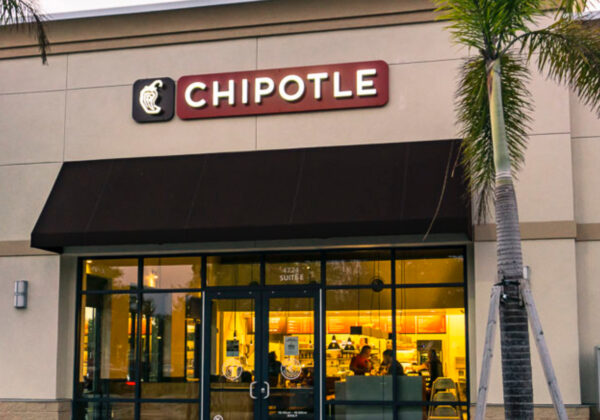Chipotle, one of America’s largest fast-food chains, is embracing automation as a means to counteract California’s rising minimum wage. With the state’s new law mandating a $20 minimum wage for fast food workers set to take effect, Chipotle is beginning to replace human workers with robots in an effort to maintain profitability and operational efficiency.
The move is a response to the cost increases that fast food businesses will face as a result of this legislation, a development that has raised concerns about the future of low-skilled employment in the industry.
The California law, set to be implemented on April 1, 2024, affects fast food restaurants with more than 60 locations nationwide. It marks the highest minimum wage for fast food workers in the U.S. and comes at a time when businesses are grappling with inflationary pressures, labor shortages, and rising operational costs. In response, Chipotle has introduced the “Autocado,” a robot that automates the avocado preparation process, which was previously a labor-intensive task for human employees.
Automation: The Industry’s Response to Rising Costs
Many conservative voices have argued that policies like California’s minimum wage increase have unintended consequences, particularly for entry-level workers who rely on fast food jobs. As businesses face rising labor costs, the incentive to invest in technology grows. This transition to automation has been described by some as an inevitable result of legislation that increases the cost of human labor beyond what some businesses can sustain.
Chipotle’s use of the Autocado robot is part of a broader trend in the fast food industry, as companies like McDonald’s and White Castle are also testing various forms of automation to cut costs. Chipotle, in particular, has made it clear that the deployment of such technology allows the company to address wage pressures without having to reduce the overall number of locations or significantly raise prices. By automating time-consuming tasks, companies like Chipotle are positioning themselves to remain competitive in an increasingly challenging economic environment.
The Pushback Against California’s Minimum Wage Hike
Critics of California’s minimum wage increase argue that this policy will not benefit workers in the long run. Some conservatives point out that instead of lifting wages for workers, such laws are likely to reduce job opportunities as businesses automate more of their operations. According to Chipotle executives, the Autocado alone can save the company valuable hours of labor per location, providing a clear example of how companies are likely to seek alternatives to human labor when the cost of employment rises too sharply.
Doctor believes this is yet another case of government overreach that undermines economic freedom. Businesses, not lawmakers, should decide what they pay their workers based on market conditions. In a competitive labor market, businesses will pay what they must to attract and retain talent. When wages are mandated at unsustainable levels, businesses are forced to take drastic measures, which can often mean cutting jobs altogether.
Chipotle’s decision to test robotic technology in California underscores the broader trend of businesses adapting to regulations in ways that may harm low-wage workers in the long term. As automation becomes more prevalent, entry-level positions traditionally filled by high school students and those with limited work experience may disappear, further limiting economic mobility for those who need these jobs the most.
The Role of Technology in Shaping the Future of Fast Food
Chipotle’s deployment of the Autocado robot reflects the growing role of technology in shaping the future of the fast food industry. While automation may improve operational efficiency and reduce costs, it raises important questions about the long-term impact on the workforce. Robots like Autocado can process avocados faster than human workers, reducing labor costs significantly, but they also eliminate jobs that once provided essential employment opportunities for many.
The broader implications of this trend could result in a reimagining of the fast food industry as we know it. What was once a sector dependent on a large, low-wage workforce may become increasingly reliant on technology. As Doctor observes, businesses will always seek to innovate to remain profitable, but heavy-handed legislation, like California’s $20 minimum wage law, only accelerates these changes.
The rise of automation in response to wage hikes is a testament to the adaptability of businesses, but it should also serve as a cautionary tale for policymakers who believe they can artificially raise wages without consequences. While Chipotle and other companies are finding ways to mitigate the impact of rising wages through technology, it is the workers who will ultimately bear the brunt of these changes.





